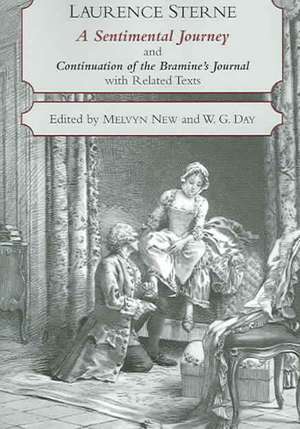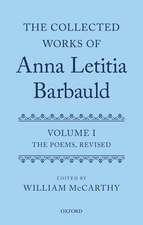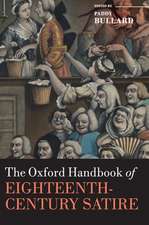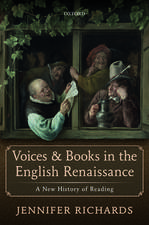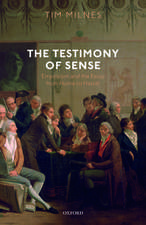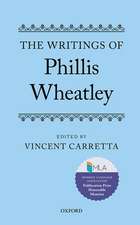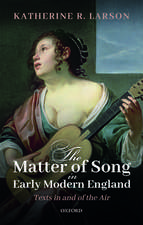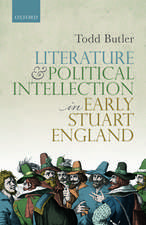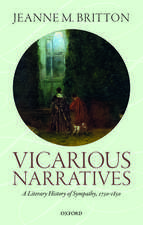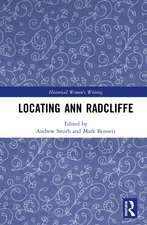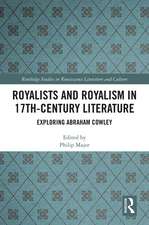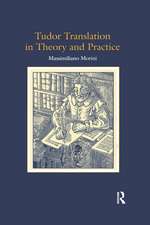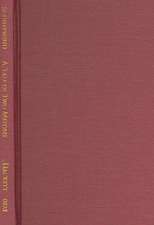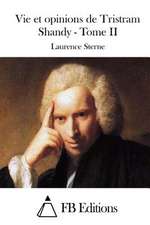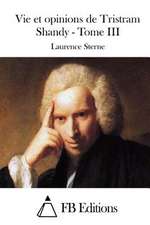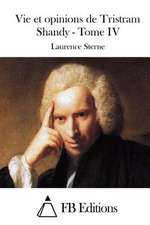A Sentimental Journey Through France and Italy and Continuation of the Bramine's Journal: With Related Texts
Autor Laurence Sterne Editat de Melvyn New, W. G. Dayen Limba Engleză Paperback – 15 mar 2006
Preț: 64.82 lei
Nou
Puncte Express: 97
Preț estimativ în valută:
12.41€ • 12.79$ • 10.47£
12.41€ • 12.79$ • 10.47£
Carte disponibilă
Livrare economică 10-24 februarie
Preluare comenzi: 021 569.72.76
Specificații
ISBN-13: 9780872208001
ISBN-10: 0872208001
Pagini: 280
Dimensiuni: 6 x 228 x 15 mm
Greutate: 0.38 kg
Editura: Hackett Publishing Company
Colecția Hackett Publishing Company, Inc (US)
ISBN-10: 0872208001
Pagini: 280
Dimensiuni: 6 x 228 x 15 mm
Greutate: 0.38 kg
Editura: Hackett Publishing Company
Colecția Hackett Publishing Company, Inc (US)
Recenzii
Melvyn New's and W. G. Day's edition of Sterne's Sentimental Journey is the single best scholarly edition of that quirky but essential text available for student use. The notes are meticulous and hugely informative. The Introduction is lucid and useful, and the supplementary materials, including excerpts from Tristram Shandy and some of Sterne's sermons, provide essential background. --John Richetti, Department of English, University of Pennsylvania
In terms of the quality and quantity of annotation, as well as the care spent in establishing the authoritative texts, the Hackett edition renders all other competing editions of these two works flimsy and obsolete. --Vincent Carretta, Department of English, University of Maryland
. . . [A]n extremely useful student edition. . . . For obvious reasons, this student edition cannot be as copiously annotated as the Florida research edition, but it is generously annotated all the same. Many notes are simply explanatory: what is a 'Desobligeant,' and why is it called that? More interesting, however, are notes in which the editors use their considerable expertise to place some particular word or reference or sentiment expressed in Sterne's text into the broader contexts of his thought. So, for example, they point out numerous instances in which Sterne was recalling phrases from the Bible or earlier literature or in which his late notions echo or revise ideas first expressed years earlier in his own sermons, his correspondence, or Tristam Shandy . They bravely attempt to untangle some of Sterne's expressions which hover uneasily between English and imperfect French; they point out many instances of Sterne's naughty doubles entendres not previously noticed (by this reader). More generally, they place Yorick's remarks and Sterne's thinking in the midst of the culture and customs of their times--the costs of travel, the experiences of other travelers, political considerations, what people were reading, and so on. In the same vein, they provide an appendix which reprints eight longer segments from Sterne's other writings to illustrate some of his characteristic attitudes. All in all, then, this is a very 'teacherly' edition, with able guides providing useful and reliable guidance. (A tip of the hat is due to the publisher as well, for bringing out this edition at a price that a student might actually afford to pay. --Peter M. Briggs, The Eighteenth-Century Intelligencer
In terms of the quality and quantity of annotation, as well as the care spent in establishing the authoritative texts, the Hackett edition renders all other competing editions of these two works flimsy and obsolete. --Vincent Carretta, Department of English, University of Maryland
. . . [A]n extremely useful student edition. . . . For obvious reasons, this student edition cannot be as copiously annotated as the Florida research edition, but it is generously annotated all the same. Many notes are simply explanatory: what is a 'Desobligeant,' and why is it called that? More interesting, however, are notes in which the editors use their considerable expertise to place some particular word or reference or sentiment expressed in Sterne's text into the broader contexts of his thought. So, for example, they point out numerous instances in which Sterne was recalling phrases from the Bible or earlier literature or in which his late notions echo or revise ideas first expressed years earlier in his own sermons, his correspondence, or Tristam Shandy . They bravely attempt to untangle some of Sterne's expressions which hover uneasily between English and imperfect French; they point out many instances of Sterne's naughty doubles entendres not previously noticed (by this reader). More generally, they place Yorick's remarks and Sterne's thinking in the midst of the culture and customs of their times--the costs of travel, the experiences of other travelers, political considerations, what people were reading, and so on. In the same vein, they provide an appendix which reprints eight longer segments from Sterne's other writings to illustrate some of his characteristic attitudes. All in all, then, this is a very 'teacherly' edition, with able guides providing useful and reliable guidance. (A tip of the hat is due to the publisher as well, for bringing out this edition at a price that a student might actually afford to pay. --Peter M. Briggs, The Eighteenth-Century Intelligencer
